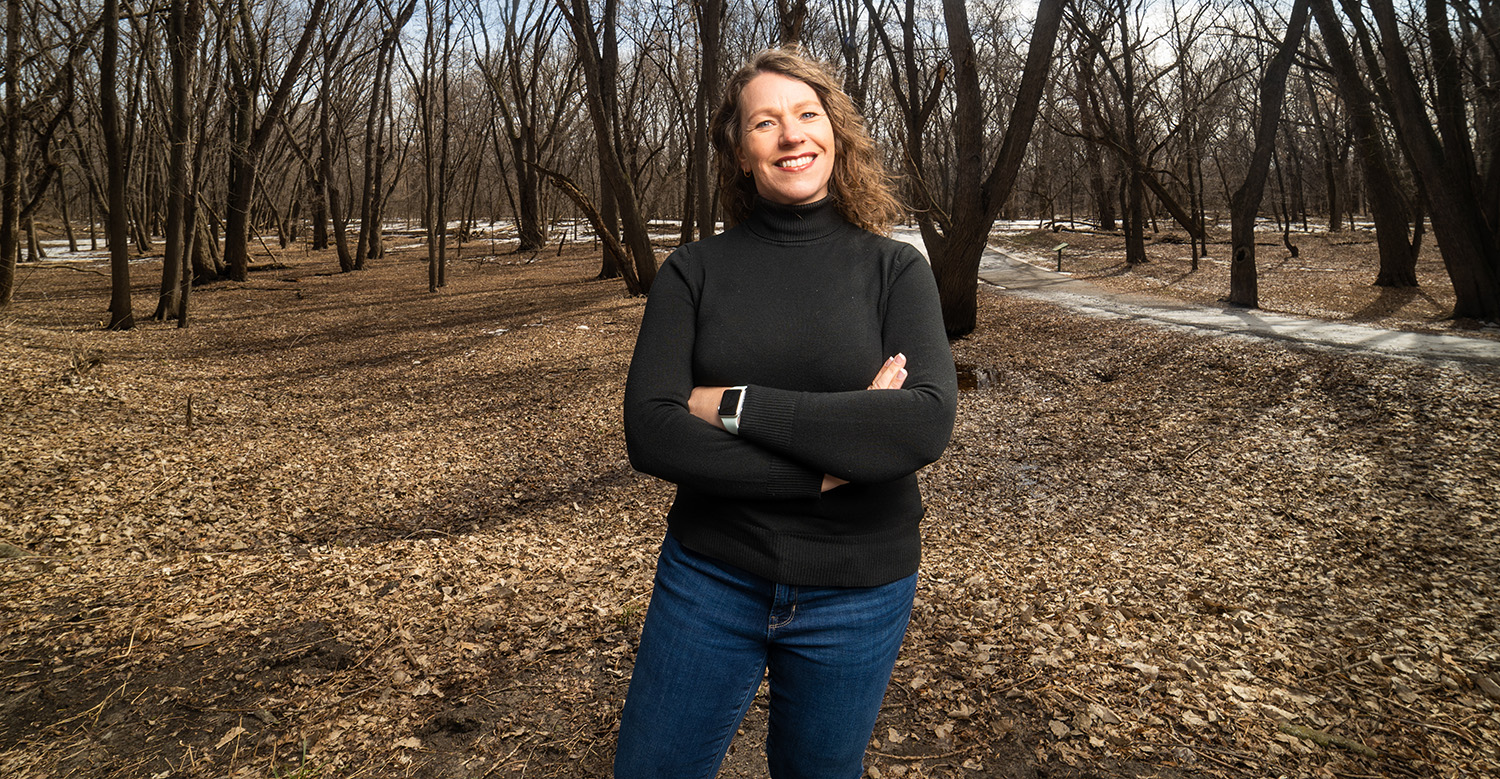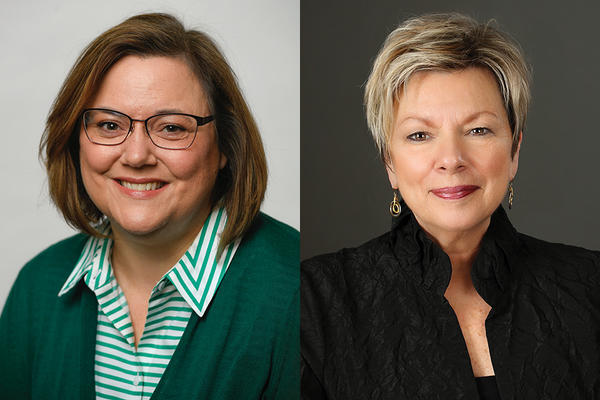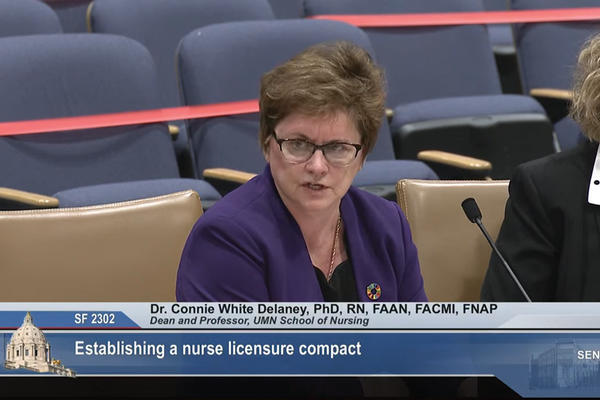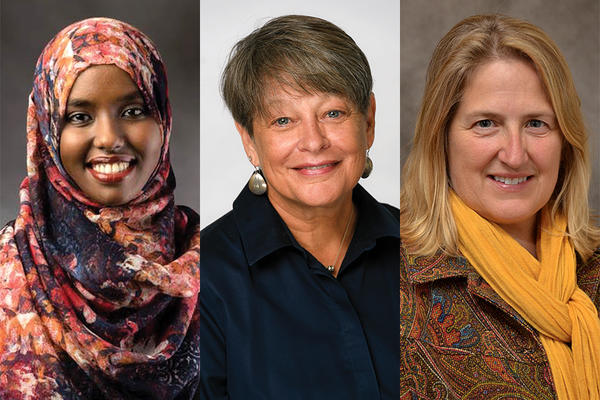The healing power of nature-based therapy
New research seeks to bring the benefits of forest bathing to more people
May 9, 2022
Brett Stursa

Nurse researcher Erica Timko Olson seeks to make forest bathing — mindfully walking in a forest while paying attention to all five senses — more accessible.
Shinrin-yoku, translated as forest bathing, was designed in Japan in the 1980s as a practice of mindfully walking in a forest while paying attention to all five senses — touch, sight, hearing, taste and smell.
Current published research on the health benefits of forest bathing show decreased blood pressure, decreased levels of oxyhemoglobin in the prefrontal cortex, decreased pulse rate, decreased cortisol levels and decreased heart rate variability.
Clinical Assistant Professor Erica Timko Olson, PhD, RN, is leading a pilot study to determine how to create a more accessible forest bathing experience to bring forest bathing benefits to more people.
This winter, 40 adult participants engaged in four one-hour experiences at Fish Lake Trail in the University’s Cedar Creek Ecosystem Science Reserve in East Bethel and at Crosby Farm Regional Park along the Mississippi River in St. Paul. The experiences included a free walk with no prompt, a walk with a written prompt, a walk with an audio prompt using smartphones and a walk led by a forest therapy guide certified by the Association of Nature and Forest Therapists.
Timko Olson is analyzing participants’ responses to questionnaires before and after each experience and responses in focus groups to determine their preferences and the study’s feasibility.
An eye on interventions
Timko Olson’s research focus has been in resilience, spirituality and anxiety in nursing students. “Through that process I read a lot of information about the anxiety of students, the anxiety of nursing students, the stress of college students, and I determined I was interested in developing interventions,” says Timko Olson.
As she conducted her early research, she was a mom of six kids and had recently moved to a new city, away from family and the farm she grew up on. “I was stressed and I was talking to my dad and he said, ‘Erica, when’s the last time you saw the horizon?’ And that will stick with me forever because I didn’t know,” says Timko Olson. “I realized I had lost my place in the world. I had missed the sunset, the sunrise. I wasn’t grounded.”
With the realization that she hadn’t spent intentional time in nature, she vowed to do so and used it as a springboard to develop nature-based therapy interventions for levels of high anxiety.
Shaping the next generation of environmental health nurse scientists
As she analyzes the results from the pilot study, she is beginning a new study with young adults with cancer. “I want these young adults to be able to have the benefits of nature therapy, but there’s COVID, and they’re quite sick,” says Timko Olson. “So where is their comfort level? Maybe they’re most comfortable going out by themselves with no prompt, but is that effective? I want to have some preliminary data to give us some guidance.”
Timko Olson credits being an A. Marilyn Sime Faculty Research Fellow in the Earl E. Bakken Center for Spirituality & Healing for the ability to conduct these pilot studies and connect with like-minded researchers. “If it wasn’t for the Sime Fellowship, I wouldn’t be able to take these opportunities. I just wouldn’t have time to jump on these opportunities,” says Timko Olson.
She was recently accepted to the 2022 cohort of the Environmental Health Research Institute for Nurse and Clinician Scientists. The program, funded by the National Institutes of Health, trains scientists who are shaping the next generation of environmental health nurse scientists and fosters career-long support and collaborations. As part of this experience, she will be creating a planetary health research course for the school’s PhD program.
Healing our relationship with nature
Timko Olson cites new research from Europe showing that spending 120 minutes in nature weekly improves wellbeing. “The greater picture is 120 minutes outside in nature is the new 10,000 steps,” says Timko Olson.
Timko Olson sees nature-based therapy interventions not only as tools to improve wellbeing and reduce perceived stress, but as a way to improve recognition of our interconnectedness.
“The bigger picture is people who are connected and engaged in nature have a greater responsibility towards nature, they have a responsibility towards it, and that’s what we need to heal the planet,” says Timko Olson. “To heal humanity we need to heal our relationship with nature.”


